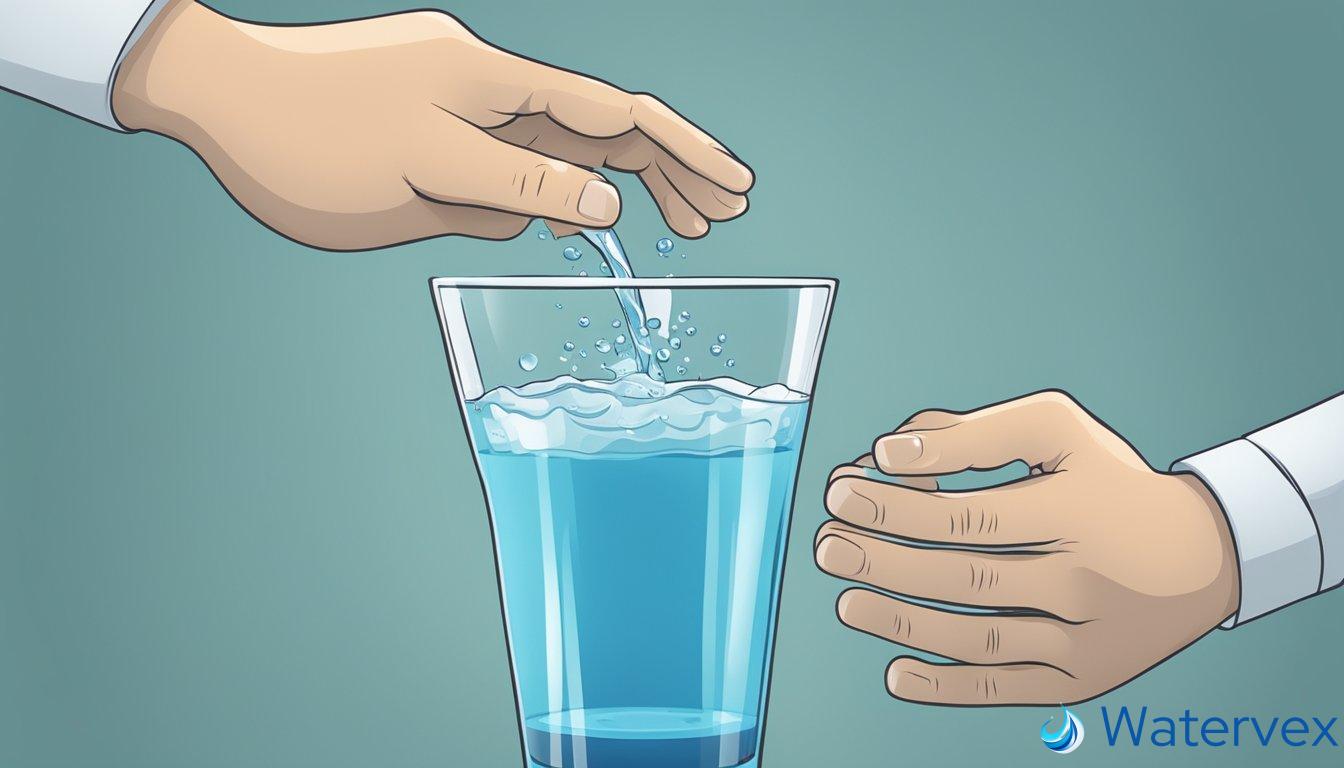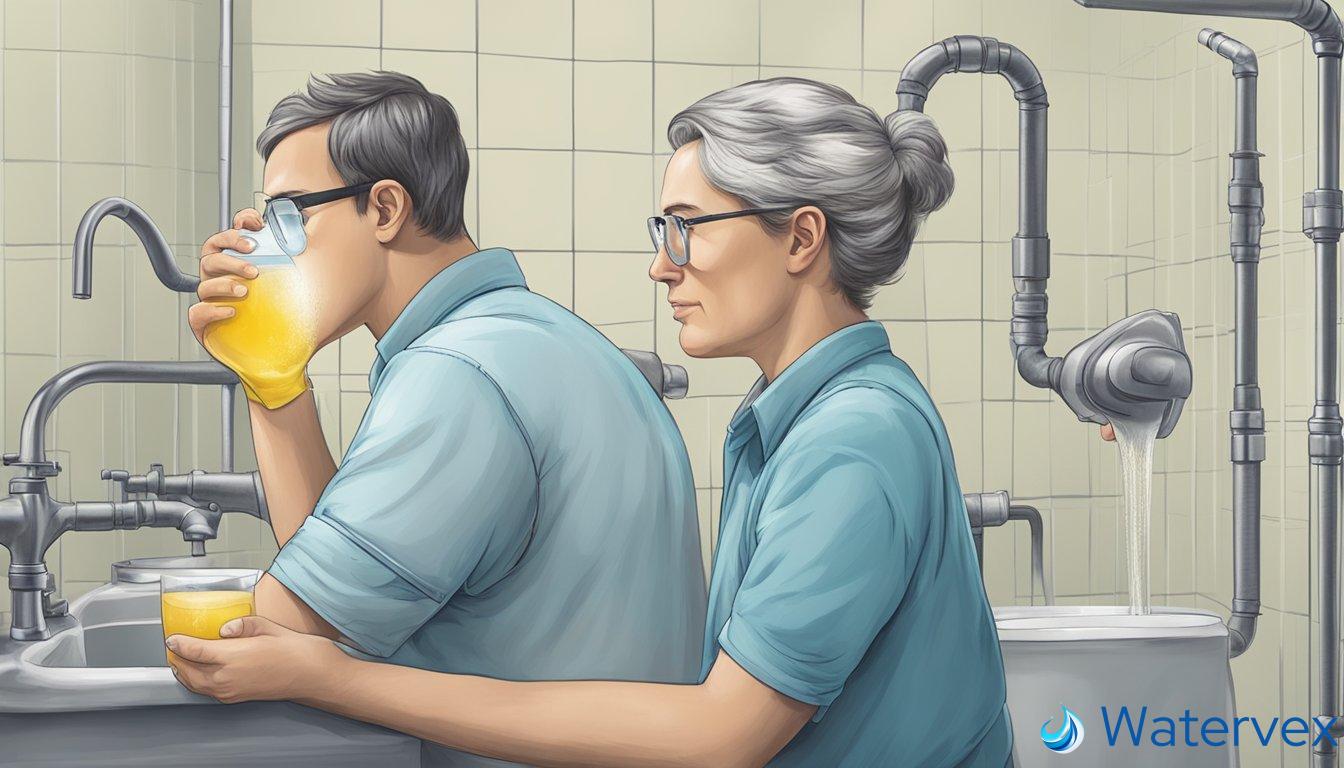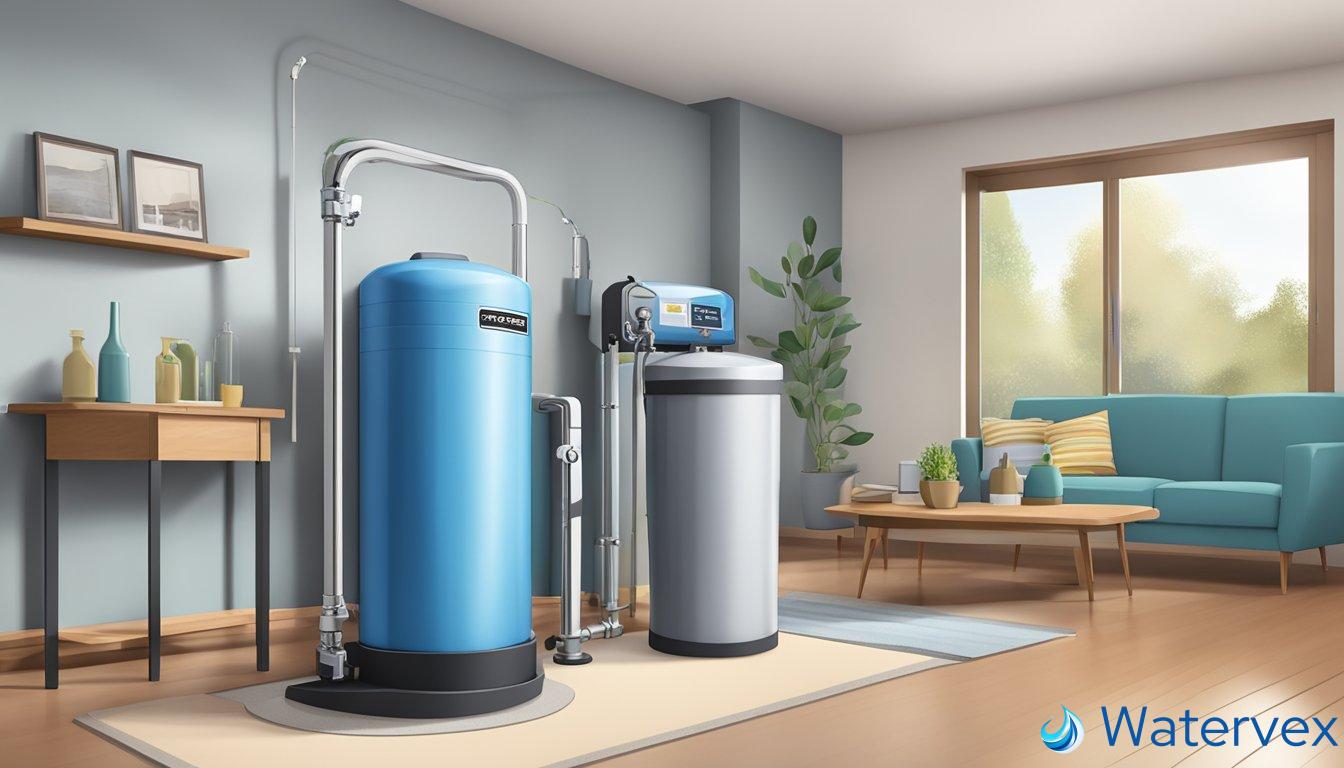When considering the installation of a water softener, many homeowners have concerns about potential health effects, such as whether softened water could cause digestive issues. A water softener’s main function is to remove minerals like calcium and magnesium, which are responsible for hard water, by replacing them with sodium ions. While water softeners are effective at preventing scale buildup in pipes and appliances, some individuals worry about the sodium content in softened water and its effects on health.

Softened water is commonly used across many households to tackle the issue of water hardness—too much calcium and magnesium in the water. Even though these minerals are essential for health, their excessive presence in water can damage plumbing and appliances. The softening process, however, exchanges these minerals with sodium or potassium, leading to a new composition of the water that flows through your taps. Questions have risen about whether this change in mineral content could possibly trigger gastrointestinal symptoms like diarrhea.
Key Takeaways
- Softened water replaces hard water minerals with sodium, altering its composition.
- Excessive sodium in drinking water from softeners may be linked to digestive discomfort.
- Awareness of water softener settings and individual health needs can guide safe use.
Understanding Water Softeners and Digestive Health
When considering the installation and use of a water softener in your home, understanding its potential effects on digestive health, particularly the risk of diarrhea, is essential.
Is There a Link Between Water Softening Systems and Diarrhea?
Softened water replaces hard minerals like calcium and magnesium with sodium. Some individuals report digestive discomfort such as diarrhea after beginning to drink softened water. This could be due to their body adjusting to a change in mineral content. In some cases, a sudden increase in sodium intake, particularly in individuals with sensitivity to dietary changes, could facilitate symptoms such as diarrhea, nausea, or vomiting.
What Components in Softened Water Could Affect Digestive Health?
Sodium: The ion exchange process used in water softeners can increase sodium levels in drinking water. While generally safe, an excessive sodium intake can lead to health issues.
Bacteria and Viruses: If not properly maintained, water softeners can become breeding grounds for bacteria and viruses, potentially causing gastrointestinal issues.
Balance of Minerals: Losing calcium and magnesium, which are beneficial for health, can affect hydration and nutrient absorption.
How Can You Safely Use Water Softeners to Avoid Health Concerns?
- External Faucet: Consider an external faucet for drinking and cooking, bypassing the water softener to retain essential minerals.
- Regular Maintenance: Keep your water softener clean and serviced to prevent bacterial growth.
- Consult with a Doctor: Especially for children and adults on low-salt diets, discussing softened water consumption with a healthcare provider ensures that your sodium intake remains within healthy limits.
When using water softeners, stay attentive to the needs of your family’s digestive health and consider these practical steps to mitigate any potential negative effects.
Health Implications of Water Softening Agents

Water softening agents are designed to address the problem of hard water in homes but come with considerations for health that you should be aware of.
Examining the Side Effects of Drinking Softened Water
Softened water undergoes ion exchange where calcium and magnesium ions are replaced with sodium or potassium. Some individuals report gastrointestinal discomfort such as nausea or diarrhea after consuming softened water. While these cases are often anecdotal, it’s important to consider that a sudden shift in mineral consumption could affect your digestiive system. High blood pressure patients should be cautious with softened water due to the increased sodium content.
- Diarrhea: If you experience diarrhea after ingesting softened water, it might be due to increased sodium intake or a sensitivity to the change in water mineral content.
- Ion Exchange: The resin used in softeners can contribute to a small amount of sodium added to the water.
Recognizing Symptoms and When to Consult a Doctor
If you notice changes in your digestion, such as diarrhea or other forms of gastrointestinal upset after drinking softened water, it’s essential to monitor your symptoms. Consult a doctor if:
- Symptoms persist for more than a few days
- You have an underlying health condition like IBS or heart disease
Keep in mind, other factors like stress, caffeine, alcohol, and medications like antibiotics can also contribute to digestive issues.
Alternative Water Softening Solutions and Their Benefits
Consider a reverse osmosis system as an alternative to traditional water softeners. This system can:
- Reduce sodium content
- Remove a wider range of contaminants compared to standard softeners
A water conditioner may be beneficial as it conditions water without adding sodium. Consider its benefits if you are sensitive to the changes a standard softener brings. Benefits include:
- Less brine waste
- No added sodium which is advantageous for those with health concerns like high blood pressure or heart conditions
Practical Guidelines and Considerations for Water Softener Use

When considering a water softener for your home, you’re dealing with the trade-off between hard water issues and potential water softener concerns. Hard water can clog pipes with limescale, reduce the efficiency of appliances, and even contribute to conditions like kidney stones. On the flip side, a concern you may have is whether the soft water produced can lead to gastrointestinal distress, such as diarrhea.
Softened water increases sodium ions in exchange for calcium and magnesium ions. Those with hypertension or heart conditions, including the risk of heart attack, should consult with a healthcare provider when considering drinking softened water, as the additional sodium could be a trigger.
Cost: Water softeners vary in price. Analyze the cost relative to potential savings on appliance repair and energy efficiency.
Septic Systems: If you have a septic system, it’s important to choose a water softener that works well with it to avoid damage.
Contaminants: Water softeners do not remove contaminants; consider additional filters if you have these concerns.
Plants, Infants, Babies, Pets: Soft water might not be suitable for watering plants, or for the consumption of infants, babies, and certain pets due to the increased sodium content.
PH Levels: An efficient water softener should not alter the pH of water; however, check if the water becomes corrosive, as it might then leach metals from plumbing.
Remember, the main aim of a water softener is to replace hardness minerals with sodium ions to prevent limescale buildup and increase the lifespan of your home’s plumbing system and appliances.
Always ensure your water softener is correctly sized for your home to maintain a balance between benefits and potential health implications. If you’re unsure, seek advice from professionals who understand the balance between water that’s too hard and water that may contribute to health issues like diarrhea. Proper maintenance and regular checks are key to a safely functioning system.

